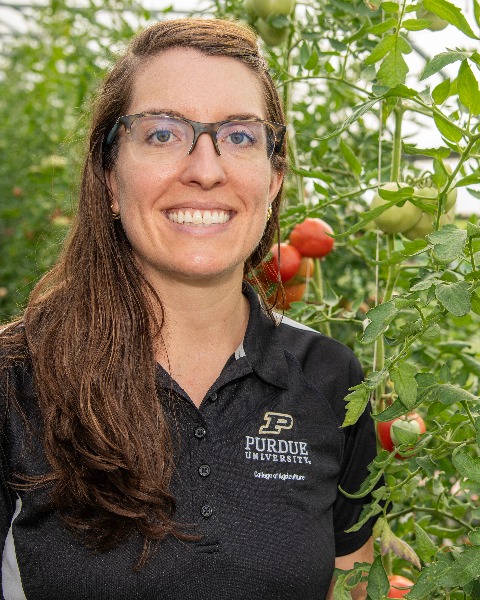Student 10-Minute Presentation Competition
Plant-Insect Ecosystems
Student Competition
Student
Grad 10-min Competition: P-IE, Chemical Ecology 1
Evaluating the potential of three insect-derived soil amendments on plant glucosinolate production
Monday, November 10, 2025
8:36 AM - 8:48 AM Pacific
Location: Oregon Convention Center, E146, OCC
- MA
Milena Alejandra Agila
Masters Student
Purdue University
West Lafayette, Indiana 
Laura Ingwell (she/her/hers)
Purdue University
West Lafayette, Indiana
Presenting Author(s)
Co-Author(s)
Brassica crop production is plagued by a variety of insect pests, causing aesthetic damage and plant death, leading to economic losses for farmers. Plant resistance to herbivores is influenced by soil conditions, nutrient availability, and frequently herbivore identity; however, the impact of insect-derived amendments in enhancing this resistance remains poorly understood. Limited studies suggest that organic amendments may increase glucosinolate levels- key defense compounds in brassicas- but few have specifically reported the effects of insect-derived amendments on plant glucosinolate content. Here, we assess the application of three insect-derived soil amendments on bok choy production: cricket frass, BSF frass, and pupal cases from BSF production. Through a greenhouse bioassay and laboratory analysis, we evaluated the impacts of these three amendment sources on resistance against two insect herbivores plaguing bok choy: the generalist aphid, Myzus persicae, and the specialist caterpillar, Trichoplusia ni. We measured plant weight, insect weight, insect population density, and glucosinolate content in plant tissues. The results of this experiment will help to understand the relationship between insect-derived amendments and plant resistance in brassicas. Additionally, this research will be presented and discussed in the context of sustainable food production, pest management, and the potential of circular economies around insect production.
.png)

